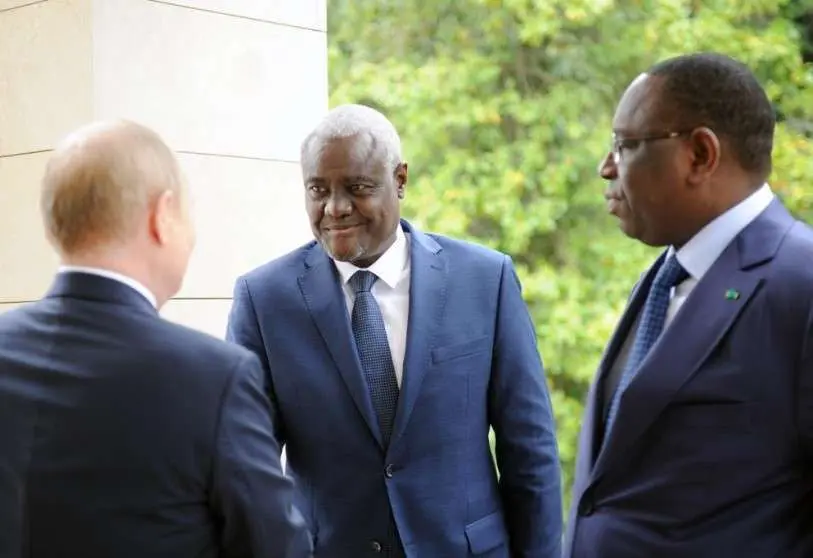La Comisión de la Unión Africana pide una investigación sobre la tragedia en Melilla

The Moroccan Ministry of Foreign Affairs convened a large group of ambassadors from African countries on Sunday to report on the recent migration crisis at the border with Melilla.
The ambassadors in attendance approved of the Kingdom of Morocco's handling of migration. The dean of the diplomatic missions, the ambassador of Cameroon, spoke on their behalf, saying he "greatly appreciates the gesture of HM King Mohammed VI to bring the migrants to Morocco", according to a statement reported by public television 2M. Morocco's main allies in Africa are thus closing ranks around Rabat in this crisis situation that could affect the kingdom.

Chad, Gabon, Cameroon and Mali are some of the countries that have given a positive assessment of Morocco's migration policy. Meanwhile, the president of the African Union Commission, Chad's Moussa Faki Mahamat, called for an investigation into the deaths of the 23 people killed in the violent assault on the fence, which left around 200 wounded among the Moroccan security forces.
"I call for an immediate investigation into the matter and remind all countries of their obligation under international law to treat all migrants with dignity and to prioritise their safety and human rights, refraining from the use of excessive force," the AU Commission chairperson said in a statement on the social networking site Twitter.
1/2: I express my deep shock and concern at the violent and degrading treatment of African migrants attempting to cross an international border from #Morocco into #Spain, with the ensuing violence leading to the deaths of at least 23 people and injuries to many more.
— Moussa Faki Mahamat (@AUC_MoussaFaki) June 26, 2022
Moussa Faki Mahamat declared himself "horrified" by the harsh images circulating on social media since Friday morning. To these words were added those of the current president of the African Union, Senegalese Macky Sall, although in a more restrained tone than his Chadian colleague.
According to the Moroccan Human Rights Association, AMDH, the Moroccan authorities are allegedly not complying with the protocols for identifying the deaths of the 23 migrants. The Moroccan government has nevertheless stated that the deaths were caused by the avalanche at the fence on Friday.
At the same time, the Moroccan public prosecutor's office is launching a harsh attack on those it considers to be mainly responsible for this tragedy, the human trafficking mafias. The public prosecutor's office has charged 32 men of sub-Saharan origin with various offences. The Moroccan Public Prosecutor's Office suggests that this group is behind the organisation of the jumps to the fence. Most of them are of sub-Saharan nationality.

The Melilla crisis could create division in the African international organisation, in which Morocco sits on important commissions, such as the Peace and Security Commission.
Police sources in the autonomous city of Melilla explain to this newspaper the great difficulty for security posed by these massive jumps and how it is an excessively complicated task to keep the waves of migrants at bay. "The fence is not a long-term solution", a member of the national police stationed at the Melilla fence told Atalayar. "The Moroccan police do not have sufficient means or training to be able to contain this type of situation. That is why when the trafficking mafias launch these types of attacks, the result is so disastrous", he continues.










